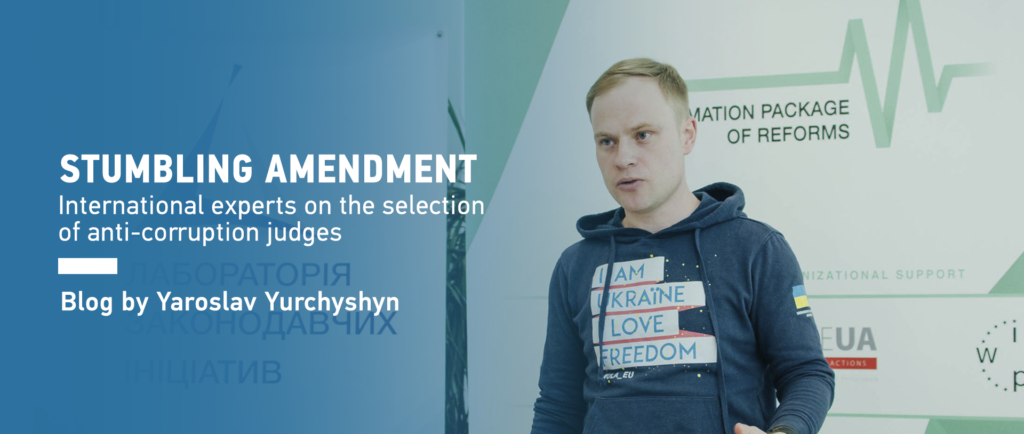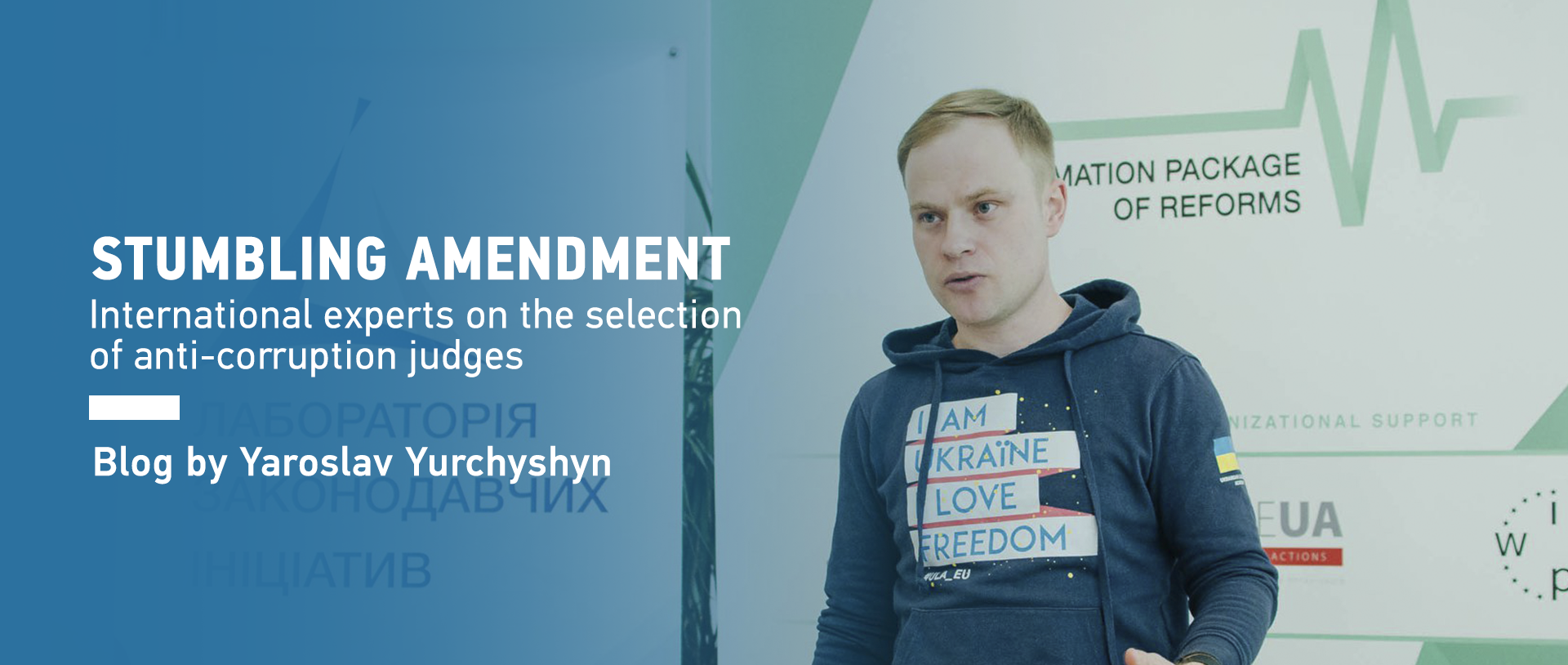

“Yaroslav Yurchyshyn for “Ukrainska Pravda”

Ukraine reached the home stretch in the race of providing legislative framework for the Anti-Corruption Court. Ukraine and its international partners (Venice Commission, International Monetary Fund and others) have effectively reached consensus on most controversial issues. The work (notably, rather constructive) is still ongoing only on one element of the procedure – the possibility to dispute a negative opinion of the Public Council of International Experts by the candidate who has been given such an opinion.
Let us imagine the situation. PCIE has to provide an opinion on the candidate’s compliance with the criteria included in the law (first of all, qualifications and integrity). It happens after verification of documents for compliance with the law, testing and other organizational procedures carried out by the High Qualification Commission of Judges (HQCJ). Based on this information and an interview with the candidate, PCIE makes its decision. If it is negative, the candidate has the right to dispute it with the HQCJ. The latter may either deny the application if the candidate failed to provide substantial reasons or accept it for review.
Then, if the application is accepted, a joint commission of the entire staff of the HQCJ (16 people) and PCIE (7 people) reviews the candidate’s profile once again and makes the final decision. The current debate revolves around the number of votes necessary in this joint session for greenlighting the candidate.
Ukraine speaks about two thirds. The reason is that it’s “qualified majority,” 16 votes. This is where international partners start asking questions. Not the part about two thirds, that is great. The question is with 16 votes, which is the same as the number of HQCJ members. Thus, the situation that is created as the result means that international partners are present, but their purpose is purely ceremonial.
As a reminder, one of the key recommendations of the Venice Commission was the decisive role of international partners. Not final, not ceremonial – decisive. When a decision can be made with zero of our partners casting a vote in its favor, that can hardly be interpreted as decisive role, can it?
The ongoing debate is about how to ensure this decisive role. Our partners believe that if there are 7 members in the PCIE, decisiveness means over a half – 4 votes (that is, 20 out of 23 members of hte joint panel). There is also readiness to consider other approaches suggested by Ukraine that would ensure decisive role of international partners. The negotiations are happening, and that is the best news – because the decision can only be found when it is discussed. What can be said for sure is that the weight of votes of Ukrainian representatives in the decision will be prevailing – at least 4 times so.
Now, as for violating the Constitution. After all decisions made with the help of our partners but with prevailing influence of Ukrainians who participate in the selection, the decision on appointment is made by the High Council of Judges and signed by the President of Ukraine, authorized by the people of Ukraine. No loss of sovereignty, yet high-quality selection process instead of its imitation.
If the consensus is found, the committee may have a meeting as early as Monday, 21 May, and it may well be reviewed in the parliament on Tuesday or Wednesday. With that speed, there is a chance to have the President’s signature by June 1 as well as another technical draft law on the launch of the anti-corruption court submitted by him to the parliament. The President has claimed numerous times that he will do everything in his power to ensure that the court will start working as early as possible and in full compliance with the Constitution and the law of Ukraine.






